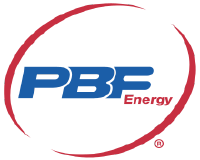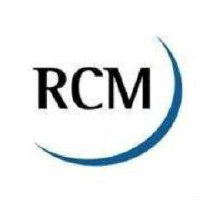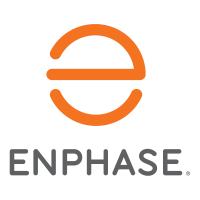
CBIZ Inc
NYSE:CBZ


| US |

|
VAALCO Energy Inc
NYSE:EGY
|
Energy
|
| US |
A
|
Alpha Metallurgical Resources Inc
NYSE:AMR
|
Metals & Mining
|
| US |

|
Nike Inc
NYSE:NKE
|
Textiles, Apparel & Luxury Goods
|
| CN |

|
Daqo New Energy Corp
NYSE:DQ
|
Semiconductors
|
| CN |

|
Alibaba Group Holding Ltd
NYSE:BABA
|
Retail
|
| US |

|
Snap Inc
NYSE:SNAP
|
Media
|
| US |

|
PBF Energy Inc
NYSE:PBF
|
Energy
|
| US |

|
Vir Biotechnology Inc
NASDAQ:VIR
|
Biotechnology
|
| US |

|
Target Hospitality Corp
NASDAQ:TH
|
Hotels, Restaurants & Leisure
|
| UK |

|
Ferroglobe PLC
NASDAQ:GSM
|
Metals & Mining
|
| US |

|
R C M Technologies Inc
NASDAQ:RCMT
|
Professional Services
|
| US |
A
|
Assertio Holdings Inc
NASDAQ:ASRT
|
Pharmaceuticals
|
| US |

|
Apple Inc
NASDAQ:AAPL
|
Technology
|
| US |

|
NVIDIA Corp
NASDAQ:NVDA
|
Semiconductors
|
| US |

|
Clearfield Inc
NASDAQ:CLFD
|
Communications
|
| US |

|
Enphase Energy Inc
NASDAQ:ENPH
|
Semiconductors
|
Utilize notes to systematically review your investment decisions. By reflecting on past outcomes, you can discern effective strategies and identify those that underperformed. This continuous feedback loop enables you to adapt and refine your approach, optimizing for future success.
Each note serves as a learning point, offering insights into your decision-making processes. Over time, you'll accumulate a personalized database of knowledge, enhancing your ability to make informed decisions quickly and effectively.
With a comprehensive record of your investment history at your fingertips, you can compare current opportunities against past experiences. This not only bolsters your confidence but also ensures that each decision is grounded in a well-documented rationale.
Do you really want to delete this note?
This action cannot be undone.

| 52 Week Range |
57.24
86.02
|
| Price Target |
|
We'll email you a reminder when the closing price reaches USD.
Choose the stock you wish to monitor with a price alert.

|
VAALCO Energy Inc
NYSE:EGY
|
US |
|
A
|
Alpha Metallurgical Resources Inc
NYSE:AMR
|
US |

|
Nike Inc
NYSE:NKE
|
US |

|
Daqo New Energy Corp
NYSE:DQ
|
CN |

|
Alibaba Group Holding Ltd
NYSE:BABA
|
CN |

|
Snap Inc
NYSE:SNAP
|
US |

|
PBF Energy Inc
NYSE:PBF
|
US |

|
Vir Biotechnology Inc
NASDAQ:VIR
|
US |

|
Target Hospitality Corp
NASDAQ:TH
|
US |

|
Ferroglobe PLC
NASDAQ:GSM
|
UK |

|
R C M Technologies Inc
NASDAQ:RCMT
|
US |
|
A
|
Assertio Holdings Inc
NASDAQ:ASRT
|
US |

|
Apple Inc
NASDAQ:AAPL
|
US |

|
NVIDIA Corp
NASDAQ:NVDA
|
US |

|
Clearfield Inc
NASDAQ:CLFD
|
US |

|
Enphase Energy Inc
NASDAQ:ENPH
|
US |
This alert will be permanently deleted.
 CBIZ Inc
CBIZ Inc






 You don't have any saved screeners yet
You don't have any saved screeners yet

Good morning, and welcome to the CBIZ Second Quarter and First Half 2018 Results Conference Call. [Operator Instructions] Please note, this event is being recorded.
I would now like to turn the conference over to Lori Novickis, Director of Corporate Relations. Please go ahead.
Thank you, Andrea. Good morning, everyone, and thank you for joining us for the CBIZ second quarter and first half 2018 results conference call. In connection with this call, today's press release has been posted on the Investor Relations page of our website, www.cbiz.com. This call is also being webcast. A link to the live webcast as well as the replay can also be found on our website.
Before we begin our presentation, we would like to remind you that, during the call, management may discuss certain non-GAAP financial measures, a reconciliation of these measures can be found in financial tables of today's press release.
Finally, remember that management may also make forward-looking statements. Such statements are based on current information and management's expectations as of this date and do not guarantee future performance. Forward-looking statements involve certain risks, uncertainties and assumptions that can be difficult to predict. Actual results can, and sometimes do, differ materially. A more detailed description of such risks and uncertainties can be found in the company's filings with the Securities and Exchange Commission.
Joining us for today's call are Jerry Grisko, President and CEO; and Ware Grove, Chief Financial Officer. I will now turn the call over to Jerry Grisko for his opening remarks. Jerry?
Thank you, Lori, and good morning, everyone. With this morning's release, we're pleased to report continued strong results for the second quarter and for the first half of 2018.
Total revenue grew by 10.2% in the second quarter and grew by the same 10.2% for the first half of this year. Of that growth, same-unit revenue represents 5.9% for the second quarter and 5.8% year-to-date. Recent acquisitions are continuing to perform well with acquisition-related growth contributing 4.3% to our total growth in the second quarter and 4.4% for the first half.
We're pleased to be able to leverage this revenue growth into higher margins and report earnings per share of $0.87 for the first 6 months of this year, which is up 31.8% over the first 6 months a year ago. The business climate continues to be favorable, which has contributed to strong demand for our services, including strong demand within some of our more transactional businesses, such as recruiting, real estate tenant advisory and corporate restructuring and recovery services. For the first half of this year, growth in our transactional services business has accounted for approximately 1% of the 5.8% same-unit total growth for the company.
Within our financial services group, total revenue increased by 14.4% in the second quarter and increased by 14.2% for the first half of the year. Same-unit revenue within this group grew by 8.4% in the second quarter and improved by 8% for the first 6 months of this year. First half same-unit revenue growth was strong in both our core tax and accounting servicing business as well as our government health care consulting business.
As we commented on our earnings call in the first quarter, performance of our private equity advisory business, which is included in our financial services group, also continues to be very strong. CMF Associates, which was acquired in June of last year, and Laurus Transaction Advisors, which was acquired in February of this year, are now going to market as a coordinated team. And we've also integrated our existing CBIZ transaction advisory services resources into this business.
Turning to our benefits and insurance group. Total revenue grew by 3.1% in the second quarter and grew by 3% in the first half of the year. Same-unit 7revenue growth improved by 1.4% in the second quarter and was up 1.7% for the first half of the year. We're pleased with the direction of improvement that we continue to see within the 4 core service lines within this group.
We're continuing to make investments in hiring, training and onboarding new-business producers within our group health benefits and our property and casualty businesses, which over time, should continue to improve our organic growth. We're also pleased with the progress that has been made to integrate the operations, processes in systems and the retirement plan services businesses that we've acquired in recent years.
So in summary, we're very pleased with the strong top line growth and bottom line performance of our businesses in the second quarter and for the first half of this year. As a whole, the important operating metrics that we use to measure the strength of the business has improved year-over-year. And we continue to experience very strong demand for our services.
So with these comments, I'll now turn it over to Ware Grove, our Chief Financial Officer.
Thank you, Jerry. Good morning, everyone.
The first half performance of the business is very strong. With 10.2% increase in revenue, we reported a 50 basis points improvement in pretax income margin with strong cash flow from operations for the first half of 2018. We have plenty of financing capacity to pursue strategic acquisitions to strengthen our business and address opportunities for share repurchases.
The outstanding balance on our $400 million credit facility was $180.2 million at June 30 this year compared with a balance of $178.5 million at year-end 2017. For the first 6 months this year, we used approximately $28.8 million for acquisition-related payments. And through June 30 this year, we repurchased approximately 124,000 shares of our common stock at a cost of approximately $2.5 million. Since June 30, we have repurchased an additional 56,000 shares for a total of approximately 180,000 shares repurchased through August 1 this year at a total cost of approximately $3.8 million. We continue to have a goal to repurchase shares at levels sufficient to offset the dilutive impact of new shares issued in connection with acquisitions or equity award grants.
We've been in the market in recent months with a steady level of repurchase activity and we continue to look for volatility in the share price to find opportunities to increase our level of repurchase activity. As a reminder, for the full year 2017, we repurchased approximately 1.2 million shares. We expect a fully diluted share count for the full year 2018 to be approximately 56 million shares compared with 55.7 million fully diluted shares for 2017.
With debt at approximately 1.7x EBITDA at June 30, there is approximately $236 million of unused borrowing capacity on our credit facility. Days sales outstanding on receivables stood at 82 days this year at June 30 compared with 83 days at June 30, a year ago. Bad debt expense for the first 6 months this year was 64% basis points of revenue compared with 54 basis points of revenue for the first 6 months a year ago.
Depreciation and amortization expense was approximately $5.9 million for the second quarter. And for the 6 months this year, depreciation and amortization expense was approximately $11.7 million. Capital spending in the second quarter was approximately $2.9 million, and for the first half this year, capital spending was approximately $5.5 million, most of which is facilities-related expenses associated with moves or lease renewals. For the full year, we expect capital spending within a range of $8 million to $10 million this year.
Acquisitions pending for earn-outs on prior year acquisitions is projected at approximately $7 million in the second half of 2018, approximately $16 million in 2019, $9.8 million in 2020, $3.7 million in 2021 and approximately $2.2 million in the year 2022. These are the estimated future cash payments scheduled as earn-out performance targets are achieved on prior year acquisitions.
Most of you are likely aware that we also have a small portion of total earn-out consideration that is paid in shares of common stock as a way to achieve alignment with our shareholders. With approximately $46 million recorded in contingent future earn-out liabilities at June 30 this year, a revaluation of this liability, including a mark-to-market adjustment on any contingent shares held for earn-outs is required each quarter. This revaluation adjustment is recorded in other income or expense and is outlined for your information in the notes to our financial statements.
In addition to revaluing the shares held for contingent earn-out liabilities, there's also a mark-to-market share price adjustment to revalue share equivalents that are associated with our nonexecutive equity-aligned cash bonus plan. This adjustment represents a small portion of the share price adjustment that was outlined in the release issued this morning, and this portion of the adjustment is reflected in operating expense.
With the nearly 49% increase in our share price through the first half this year, we recorded a charge of approximately $1.9 million in the second quarter and approximately $2.8 million for the 6-month results ended June 30, 2018. And that is related to the impact of the share price increase. This charge impacted reported margin on pretax income by 80 basis points or the equivalent of $0.03 earnings per share in the second quarter and impacted reported pretax margin by 60 basis points or $0.04 earnings per share for the 6 months ended June 30 this year.
It is worth noting that the number of shares held for contingent consideration does not change with share price changes, and there is no cash impact to CBIZ as a result of share price changes that cause adjustments to the value of earn-out liabilities. Also it is important to know that any impact as a result of future share price changes is unpredictable. And as a matter of practice, we do not estimate nor include the impact of any future share price changes in our outlook or earnings guidance.
The effective tax rate for the first half this year is at 25.1%, very close to our full year expectation of 25%. As expected, the second quarter activity associated with accounting for stock compensation expense served to reduce our effective tax rate closer to our full year expectations. As a result of this activity in the second quarter, the effective rate in the second quarter was 19.8%.
We want to again remind you that the impact of stock compensation accounting on our effective tax rate has a number of unpredictable variables, such as the timing of option exercises, the number of shares exercised and the exercise price. These unpredictable factors can alter our effective tax rate, but we continue to expect a full year effective tax rate of approximately 25% for 2018.
Now eliminating the impact of accounting for gains or losses on the assets held in our deferred compensation plan, the gross margin in the first half this year would be 18.2%, an increase of 130 basis points compared with 16.9% for the first half a year ago. General and administrative expense was 4% of revenue in the first half this year compared with an adjusted 3.9% for the first half a year ago. The small relative increase in general administrative expense compared with revenue is associated with a higher expense related to incentive compensation this year.
The new revenue recognition accounting standard that was adopted in January of 2018 had an impact. In the first half this year, there was approximately $1 million of additional revenue that was recognized under the new accounting standard compared with the prior year. And you'll find this information outlined in the footnotes and related schedules in our second quarter 10-Q filing. The timing of this revenue will normalize in the second half this year, and we expect minimal impact for the full year when you compare with the prior year.
As we look at the second half of 2018, business conditions remain very positive. As we described earlier, client demand has been strong through the first half, including demand in our transactional businesses that are more difficult to predict over the balance of the year. We also expect spending related to the investment initiatives that were described earlier may be higher in the second half. For example, we intend to accelerate the rate of hiring and onboarding of new producers, plus there is a planned marketing and branding campaign that is scheduled for the third and fourth quarter this year that did not occur in the first half.
So as we look at our outlook for the full year 2018, we expect growth in total revenue for the year to be near the higher end of the range of 5% to 8% growth for the entire year. We expect to report an effective tax rate of approximately 25% for the full year, recognizing there are a number of unpredictable factors that could cause the effective tax rate to be either higher or lower than expectations.
We expect fully diluted share count for the full year of approximately 56 million shares, and there are a number of factors that can cause variability in the full year share count, including share price. Recognizing there may be a higher level of investment spending in the second half this year, we expect to achieve growth in earnings per share within a range of 13% to 17% over the $0.92 reported for 2017. Adjusted to eliminate the onetime impact of the Tax Reform Act in 2017, we expect to achieve growth in earnings per share of 20% to 24% over an adjusted $0.87 reported for 2017.
So with those comments, I will conclude. And I'll turn it back over to Jerry.
Thank you, Ware. I just want to add a little color around a couple of the items that Ware touched upon.
Given our strong results for the first half of the year, some of the factors that are tempering us from guiding even higher are that a portion of the revenue that was generated in the first half of the year relates to noncore transactional services. And as you would expect, it's difficult to predict similar results for the remainder of the year. We also benefited from 2 nonrecurring items that increased pretax income by approximately $1.2 million in the first half of the year. And so while we're very optimistic about the prospects for our business in the second half of the year, much of the work that performed during that period tends to be more project oriented and difficult to predict.
Now turning to our tax rate for the year. We're pleased that the year-over-year improvement in our federal tax rate has allowed us to accelerate certain investments in the growth of the business that would otherwise have been made at a later date, including the acceleration of the hiring of a greater number of new producers within our benefits and insurance group and the funding of a national cable-TV branding campaign that is scheduled to begin airing in our major markets throughout the United States in the third quarter. We're also working on business plans for a number of other investments that we believe will even strengthen the long-term prospects of the business. And as you would expect some portion of tax savings is reflected in our quarterly and our year-to-date earnings as well.
So with that said, I'll now turn it back for questions that you may have.
[Operator Instructions] And our first question comes from Chris Moore of CJS Securities.
Maybe we could start on the M&A side. Just kind of talk a little bit about the environment that you're seeing? Are potential acquisitions looking for kind of higher multiples these days? How that piece of the business is going.
Yes, Chris. No real change from prior periods. It continues to be a competitive environment for high-quality assets in the market. What we're working on is really making sure that we have a full pipeline of those opportunities and that we have enough people out in the market searching for those opportunities. We're doing that by making investments in both internal resources as well as engaging external resources. So we really haven't seen a marked uptick in the multiples or the pricing over last quarter or the past 6 months or even 1 year. It continues to be -- remain very competitive, and we just need to make sure that we are out there getting our at-bats at these things.
Got it. Just from -- growth from a kind of geographic standpoint, I mean, the fastest-growing areas now and would you expect that to change, say, 3 to 5 years from now? I'm trying to get a feel for what areas might have kind of some hidden potential for growth at this stage?
Yes, Chris, nothing insightful, I think, there really. What we did was, when we -- obviously, throughout the course of the year, we've gone back and looked at where that growth is coming from within CBIZ, both geographically within the practice groups and within certain sectors of the market. And what we've discovered is that, really, and pleasingly, the growth is coming across all geographic markets not specific to a particular sector or industry. And as I indicated, we're seeing nice progressive growth in both of our core businesses. So we talked to our offices. We're hearing the same things. Just very favorable business climate, strong optimism among our clients, strong demand for our services kind of across all sectors. So that's really what's driving the growth that you've seen year-to-date within CBIZ. As you look forward, you mentioned 3 to 5 years, we just continue to concentrate on generally attractive demographic markets, so strong geographic markets and trying to expand or -- into those markets or enter those markets if we don't already have a footprint there or a foothold there.
Got it. In terms of the increased investment on the new producers, on the marketing side. I assume there's a lag in terms of kind of when you make that investment and when you would expect to see tangible results? Would that be sometime in mid-fiscal '19 before you would have a good sense as to kind of how that program is going? Or how do you view that?
Yes, we're looking at it in a couple of different -- through a couple different lenses. First of all, you're right, there is a lag between the time that you hire new producers and the time that -- what we call validate, which is that they're more than carrying their cost and producing the return that you would expect them. That's about an 18- to 36-month period of time. Now we're committed to this program. We started a about a year ago, really starting to ramp it up. As Ware indicated, we're actually accelerating some of those hirings into the second half of this year. So the people that we hire this year and through this -- well, that we've hired so far this year and hire for the remainder of this year, there will still be a question as to whether they will validate or not kind of going into 2019. Having said that, the other kind of lens that we look at is that, as a group, they are producing at or above expectations for the levels that they're at within the organization. So all signs are very promising as to the productivity of that group so far. And we're very encouraged by the recruiting efforts and the quality of people that we're bringing into the program, and we expect to be on our goals for new hires, certainly, by the end of the year.
Got it. Last question from me. The Edward Jones contract expires at the end of this year. Is it reasonable to assume that you would announce renewal a month or 2 in advance? Or how does that normally work?
Yes, we will -- first of all, we received very positive signals from Edward Jones that there will be no issues with the renewal of that contract. We're working through some legal terms to get Is dotted and Ts crossed, but we would expect that we would certainly finalize that well before the end of the year. And we will send out an announcement when we get that complete.
Our next question comes from Jim MacDonald of First Analysis.
So last quarter, you called out some onetime items for the strong growth. I guess, you also mentioned this quarter that 1% of them has added transactional business, I believe you said. Any other onetime items this quarter that you want to call out?
No, Jim. On a top line basis, remember the revenue recognition is a first half acceleration of revenue that will normalize through the second half. So that's about $1 million of additional revenue in the first half. And then the other 3 items that Jerry talked about continued from first quarter to second quarter. So that's kind of a first half synopsis that was very strong. And that accounted for kind of 1% of the organic growth in the first half. And as Jerry commented, that's difficult to predict in the second half. So those are the 2 things. The other items are, of course, the expense items we talked about.
And the -- just clarifying that. You're talking about $1.2 million of pretax gain in the first half. How much of that was second quarter?
Yes, that was a first quarter item, and therefore a first half item. And you'll remember, we talked about a settlement related to the Hurricane Irma disruption and also the sale of a small book of business in one of our businesses that both occurred in the first quarter.
Okay. And then how about the possibility of additional tax reform-related work? How about your thoughts on that currently?
Yes, so, Jim, we commented a little bit about this earlier, too. So if you think about the timing of that, the Tax Reform Act was passed in the third week of December last year. It gave us very little time to do much work in the first quarter, and of course, the first quarter and into -- through April 15 is a very busy time for us. So there was some amount of work that was done early on in the year relating to repatriation. That work needed to be done, and we were able to complete that. Then what happened is our professionals are heads down, working very busy through busy season and then just kind of, naturally, they'll take a little bit of time off right after busy season. They are now out talking to clients about the impact of the Tax Reform Act. There's lots of opportunities relative to working with our clients on reorganizations and restructurings and planning. But right now, it's really in the early stages of just describing to our clients what the opportunities are, and then if they move forward, than that work will come in the -- probably third quarter, fourth quarter of this year and then continue into 2019. So we're very encouraged by the amount of work that may come out of that, although, it's very difficult to predict with certainty what that might be.
So it sounds like you really haven't seen much of it yet, though.
No, we haven't seen a lot of it, certainly, since the early part of the first quarter.
And this accounting for contingent earn-out shares that's bouncing your EPS around. First, I wanted -- so you said it was a $0.03 positive, is it also then -- I mean, negative. And then -- it was $0.015, and by my calculation -- or positive in tax rate. So am I right in thinking it sounds like $0.015 net between those 2 items? Or am I double counting somehow?
Yes, I'd have to go back, Jim, and kind of reconcile the tax piece of that. But you're right, for the quarter, there was roughly $0.03 and year-to-date $0.04 of a charge related to the share price adjustment.
Is that pretax, just to clarify?
That is pretax, yes. I'm sorry, no, the charge, the pennies, are net of tax. That's bottom line, net, Jim.
Okay, that's what I was trying to calculate. But -- and most of the tax rate -- the impact was related to those items.
No. The tax rate impact is related to 2 things: first of all, the statutory reduction in the federal rate and then secondly the impact of the stock compensation accounting. So you may remember in the first quarter, we typically don't have a lot of shares exercised and restricted shares lapse. In the second quarter, we kind of anniversary the grant dates, and therefore, the activity spikes a bit. So there was a bigger impact in the second quarter there. That's a piece of it, but the bigger piece is the statutory reduction on the Tax Reform Act.
Yes. Okay. And just one philosophical question. I mean, given this hard-to-predict item, what do you think about moving to maybe a pro forma adjusted EPS to kind of take it out?
Well, to the best of our ability, we've given you the information to allow you to do that. So we don't have a fully reconciled or stated adjusted EPS number, but we try to make it easy for you to accomplish that, if that's what you want to do.
[Operator Instructions] Our next question comes from Marc Riddick of Sidoti & Company.
I was wondering if you could spend a little time talking about the marketing strategy and planning and what's been implemented so far and what we would expect to see going forward.
Yes, so the one thing that we've called out here, Marc, is this national TV cable branding campaign that's -- we've talked about for a long time here. It is just something that we knew that we needed to invest in just to improve our visibility in our markets and in our brand recognition. And so with a portion of the proceeds that came from the tax rate savings this year, we engaged advisers to help us on that, agencies. We've surveyed our clients and nonclients in the market to get a good baseline as to the brand recognition and the perception of the company in the markets where we're going to be running these campaigns. We've hired an agency to help us prepare that campaign. We believe that we should be ready to launch in a number of -- virtually all of our major markets here shortly. I think it's actually scheduled for August or September. And we're excited about what's that going to bring for us.
Okay, excellent. Excellent. I wanted to then shift gears a little bit. And when you're looking at the markets, you mentioned the transactional acquisitions kind of -- going to market as one from the acquisition. I just wondered if you could dive a little bit more into that, that integration and sort of maybe what you're seeing there that either is encouraging or room for upside or that type of thing.
Both, right? Both encouraging and both room for upside. So let's step back a little bit. Some -- almost 2 years ago, we came out of our strategic plan with a vision to identifying areas within our business where there was opportunity for accelerated growth. Private equity industry was one of those areas. We were fortunate to identify CMF Associates as a service offering that was highly valued in that space, and we did not have sufficient scale. It's an outstanding organization with outstanding leadership. We acquired that business in June of last year and, with that vision and leadership and strategy, then pooled together our internal resources on our transaction advisory services, much of which -- those services were being provided geographically but not with a national focus. So we were able to bring those resources together, put them under one umbrella with CMF. We also identified that there was a need for additional resources in that transaction, that [ has ] space for us. And Laurus Advisors, who we acquired in early part of this year, fit the bill there. They've been a terrific addition to the team as well. And so now as opposed to serving private equity businesses geographically, as we did prior to the acquisition of CMF last year, we now have a national team with a national focus with national strategy. And again, great -- we've seen terrific year-to-date results. Terrific results through the latter part of last year with very bright prospects for the future there as well. The -- candidly, the one constraint we have is just having enough trained and qualified resources to take advantage of all the opportunities we see.
[Operator Instructions] This concludes our question-and-answer session. I would like to turn the conference back over to Jerry Grisko for any closing remarks.
Okay. Thank you. Well, I appreciate you participating in the call today. I'd like to thank our analysts and our investors for their continued support. And I also want to congratulate our team members for another exceptional quarter and an exceptional first half of the year. And we look forward to talking to you again on our next quarterly call. Thank you. And have a nice day.
The conference has now concluded. Thank you for attending today's presentation. You may now disconnect.